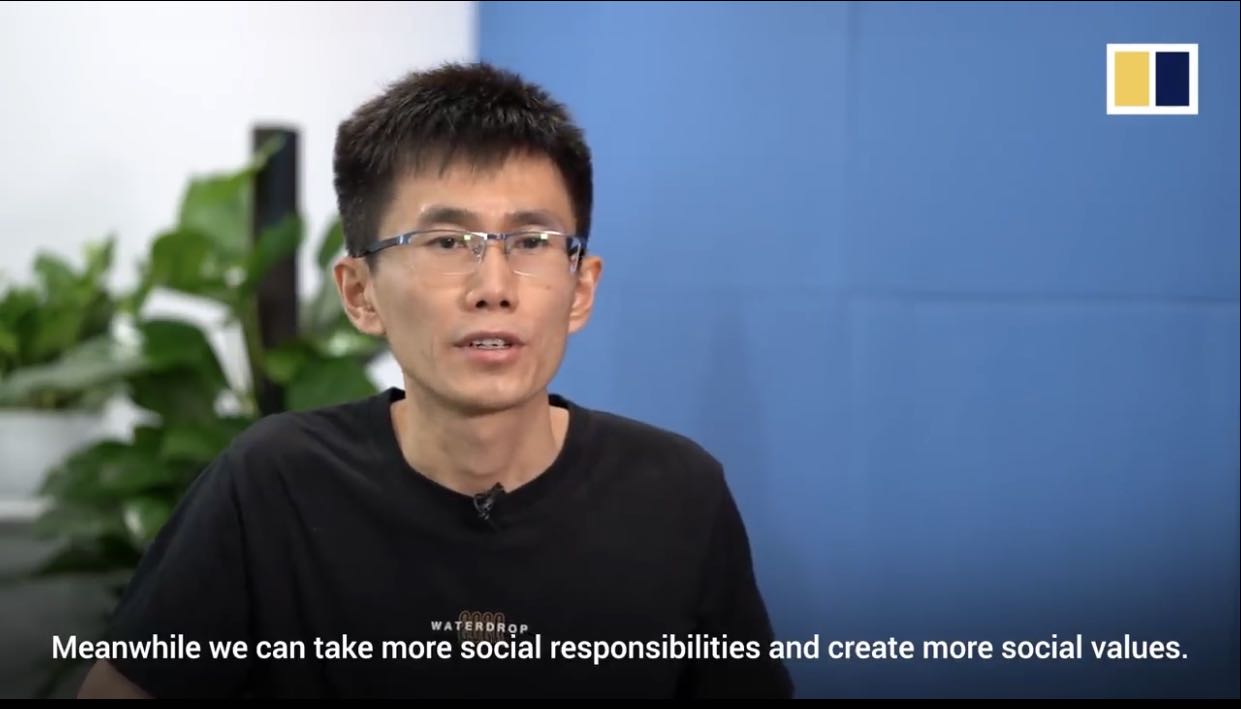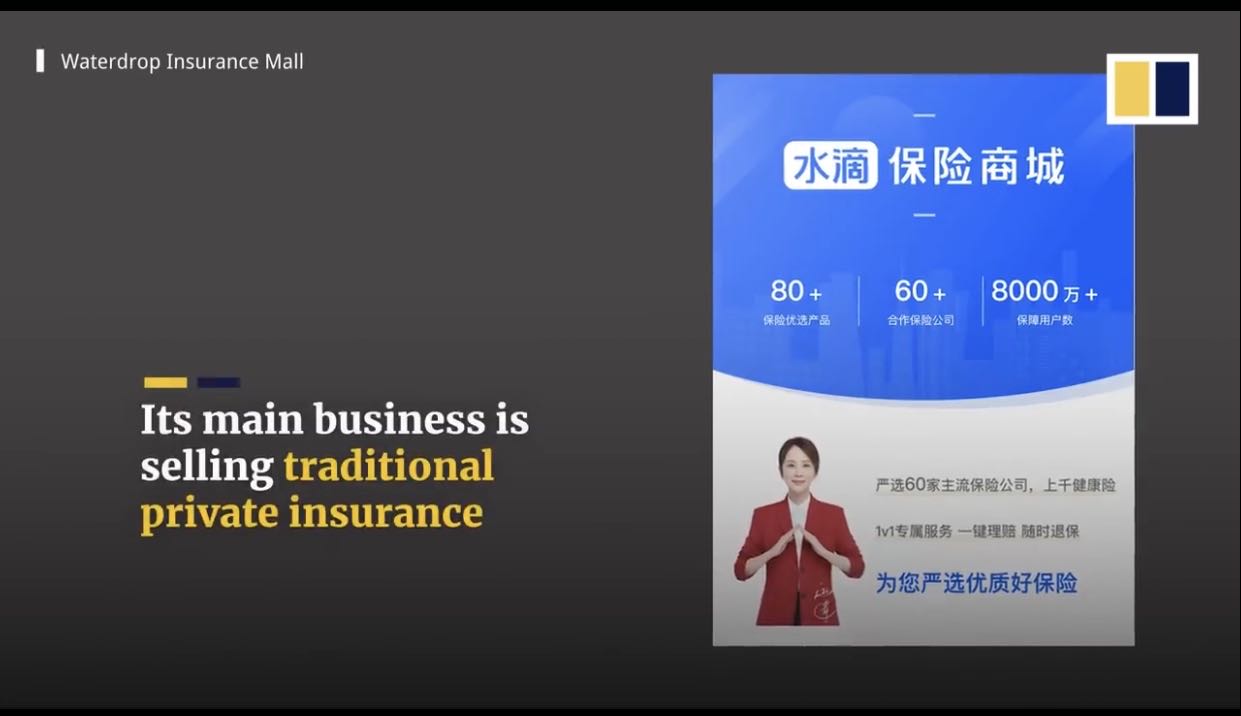网络互助正在填补中国低收入人群的医疗保健缺口
摘要 南华早报近期关注了中国的网络互助和互联网保险行业。报道称,中国拥有数十个网络互助平台,行业中三家最大的参与者各自拥有超过1000万会员。这些平台在农村地区的中低收入家庭中很受欢迎,那里通常缺乏优质的医院和负担得起的医疗服务。每月只需支付不到1美元,如果遇到重病,即可获得10万元人民币的帮助——这是一

南华早报近期关注了中国的网络互助和互联网保险行业。报道称,中国拥有数十个网络互助平台,行业中三家最大的参与者各自拥有超过1000万会员。这些平台在农村地区的中低收入家庭中很受欢迎,那里通常缺乏优质的医院和负担得起的医疗服务。
每月只需支付不到1美元,如果遇到重病,即可获得10万元人民币的帮助——这是一个网络医疗互助平台如何帮助农村居民胡有斌被诊断出患有癌症时支付医疗费用的真实案例。
在中国这个拥有超过14亿人口而且很多人无法获得优质的医疗服务的国家,由于大病重疾导致“因病返贫”是许多像胡有斌这样的中低收入家庭可能面临的现实情况。
不过,这种情况一直在改善,因为包括阿里巴巴、百度、美团点评、滴滴出行和智能手机制造商小米在内的中国科技巨头现在通过各自的网络互助平台为人们提供了一种更加实惠的医疗保健计划。用户以低额费用成为会员,群体内成员共担风险,一旦有人发生互助事件,会员们共摊资金。
与大病筹款平台不同,互助平台是针对符合加入条件的健康人群,互助平台的会员如果患病,只有在经过调查审核后,才能获得赔付的费用——因此,一个人的1000元医疗费用在一个千人的集体互助计划中最终会变成每人分摊成本为1元。互助平台运营方通常会在有人需要赔付时才向会员收取分摊费用。
“我加入该平台是因为我想帮助其他人。一两元也根本不是什么大钱,”蚂蚁金服的互助平台“相互宝”的受益人之一胡有斌说。“我没想到我会从服务中受益,我也不想这样做,但是生病时我别无选择。”
去年4月,来自中国湖南省的56岁的胡有斌被诊断出患有口腔癌,并于次月进行了手术。他的家人在医疗费用的相关支出大约为14万元,相当于这个家庭整整两年多的收入。截至胡有斌生病时,他在相互宝上已经总共分摊了4.79元人民币,帮助了像他这样的大概2200名相互宝成员。
相互宝于2018年10月推出,其字面意思是“相互保护”,现已成为中国最大的网络互助平台,在不到两年的时间内就吸引了超过1亿名用户加入。相互宝可以在支付宝的App中使用,它为用户提供了基本的健康计划,保护参与者免受100种以上严重疾病的侵害。
“这完全超出了我的预期”。蚂蚁集团副总裁、保险事业群总裁尹铭说:“我对我们的服务能力是否足够感到惊讶,甚至也有些担心。”他补充说,在相互宝上线当天,新注册用户就超过了100万。
与其他互助平台类似,相互宝现在收取8%的管理费,用于分摊金额收支、案件调查审核、诉讼仲裁公证、日常运营维护等。
尽管支付宝不依靠相互宝来赚钱,但相互宝也促进了支付宝的保险业务。截至2019年9月,第三方保险公司在蚂蚁保险平台上出售的健康险保单同比增长了60%以上。在过去的二十年中,中国政府推动建立了三项基本医疗报销计划(城镇职工医保、城镇居民医保和新农合),以期为其公民实现全民健康覆盖。根据世界银行的数据,它们共同构成了如今中国看病就医的基础,到2011年底,该计划覆盖了中国95%的居民。

但是,在商业保险行业的成熟度方面,中国仍然落后于西方国家,为确保世界上最多的人口免受大病重疾的侵害,中国仍然面临着一些挑战。
中国拥有数十个网络互助平台,三个最大的互助平台成员均超过1000万。根据蚂蚁集团上月发布的互助行业白皮书,除相互宝外,截至3月底,由另一家互联网巨头腾讯投资的水滴互助也吸引了1400万成员。
水滴是由沈鹏于2016年创立的,六年前,沈鹏大学刚毕业就加入美团,成为美团公司的第十名员工。随后,他担任了美团核心的业务外卖的负责人。他是在中国人保(601319,股吧)公司(PICC)的一个职工家属院长大,所以从小就对健康保险有兴趣。
“ 2015年,我意识到当时中国的保险主要服务中产和以上的家庭,其实中国缺乏的是普惠性保险,真正能保障蓝领和其他中低收入群体。” 33岁的沈鹏说。“尽管有这么多人可以使用互联网服务,但我认为用互联网方式做普惠保险是很有机会和意义的一个事情。”
截至到2019年底,水滴公司旗下业务共有3.1亿用户,三个平台包括现在:网络互助平台水滴互助、互联网保险经纪平台水滴保险商城和网络大病救助平台水滴筹(在这里大病患者可以在线发布求助信息和接受爱心人士的捐赠)。到目前为止,水滴互助平台已为10,000多名会员提供了超过15亿元的医疗费用。
沈鹏认为,尽管互助计划对用户而言性价比很高,但从业务角度来看,面临的挑战是找到多种利润流以支持快速增长。“我们希望在确保自己健康可持续发展的情况下,能够创造更多的社会价值。”他说:“公司经营不同的业务,我们可以在不同部门之间协同流量……我们用有收入的业务来投入养活这些没有收入的业务。”
实际上,到目前为止,水滴保险商城是该公司唯一赚钱的业务。沈鹏说,公司每年在“水滴互助”和“水滴筹”的补贴高达数亿元人民币,但水滴保险商城目前每个月的年化保费已超过10亿元,这使得整个公司在过去两个月中实现了盈利。
33岁的北京居民李晓彤两年前通过水滴筹捐款帮助一位患病的亲戚,随后她了解到了水滴互助,并且加入了两个针对癌症的互助计划。
“因为收入原因,我从未考虑过购买商业保险。”担任公务员的李晓彤说,“但是对于网络互助平台来说,每个参与者需要支付的钱非常低。”
2016年到2018年的两年多,李晓彤为两个互助计划一共分摊了100多元人民币,在2018年被诊断出患有乳腺癌后,她总共获得了40万元人民币。她说:“这笔钱足以支付手术和其他费用,包括康复过程中的检查费用,这是很大的帮助,因为如果我们仅依靠薪水,将承受巨大的经济压力。”
自2003年爆发非典以来,中国的医疗保障体系已成为全国关注的焦点。虽然政府已经为“看病难,看病贵”的问题做了很多工作,但对于抗大病风险、经济灾难性的疾病风险保障还是有限的。尤其是对低收入家庭来说,一次大病重病的支出费用可能是一场灾难。
网络互助平台在中国农村地区的中低收入家庭中很受欢迎,那里往往缺乏优质的医院和负担得起的医疗服务。相互宝数据显示,其60%的用户来自三线甚至更低线的城市,其中70%的人每年收入不到10万元人民币,而在水滴互助平台上,则有75%的用户来自三线甚至更低的城市。
这些平台还与传统保险公司开展合作。水滴保险商城已经与60多家保险公司合作,包括中国人寿、中国太平、平安、泰康人寿、人保财险和爱心人寿,并推出了80多种保险产品。
“对于保险公司来说,我们要扩展业务的困难在于我们需要知道我们潜在客户的位置及其特征,”总部位于北京的爱心人寿副总经理李驭说。 “在这方面,水滴保险商城为其用户提供了广泛的类别和各种标签,非常清楚。”
自去年底开始与水滴合作的爱心人寿在水滴保险商城上有两种产品——年金产品和儿童重疾保险,后者是基于水滴整个平台大数据的定制产品。
“对于像中国这样的大国,北京人民的健康状况显然不同于广东省。但在传统的保险定价模式中,我们以相同的方式对待它们,” 李驭说,“对于这些具有大流量的网络平台,他们可以利用互联网金融技术,根据健康状况、地区、年龄等将客户划分为更清晰的类别……而每个客户可能拥有数百个标签。”
此外,在线销售的保险产品可以更快地更新,并在一类较大的产品中提供更多样化的保单。
网络互助计划从技术上讲不是保险,因为赔付不是互助平台提供的。今年3月,政府下发《关于深化医疗保障制度改革的意见》,要建立“多层医疗保障体系”,将网络互助也纳入医疗保障制度体系,以支持其发展。
蚂蚁集团的白皮书说,到2025年,中国的网络互助行业预计将达到4.5亿用户,占人口的近三分之一。
“未来,我们希望与合作伙伴携手创造中国的凯撒医疗或者联合健康模式。” 沈鹏说。
沈鹏有更大的抱负,尽管水滴公司将在未来三到五年内继续专注在中国市场,但从长远来看,他希望将这种模式介绍给更多“一带一路”的国家。
Online mutual aid platforms are plugging a health care gap in China for those on lower incomes
China has dozens of online mutual aid platforms, with the three biggest players each having more than 10 million members
The platforms are popular among low- and middle-income households in rural areas, where there is often a lack of quality hospitals and affordable care.
Pay less than US$1 and get up to 100,000 yuan (US$14,144) of help if you face a critical illness – this is how an online health care mutual aid platform helped rural resident Hu Youbin pay medical expenses when he was diagnosed with cancer last year.
In a country with a population of over 1.4 billion and uneven access to quality health care, poverty due to serious illness is a reality that many low and middle-income households like Hu’s have to potentially face.
However, the situation has been improving as Chinese tech giants including e-commerce company Alibaba, search engine Baidu, on-demand delivery company Meituan Dianping, ride-hailing operator Didi Chuxing and smartphone maker Xiaomi now offer more affordable health care plans via mutual aid platforms, which operate as a collective claim-sharing mechanism.
Unlike other crowdfunding platforms where people raise funds for specific projects with certain amounts of money, participants of mutual aid platforms share the cost of a claim only when it has been verified – so a 1,000 yuan claim for medical treatment by a person would end up as a cost of 1 yuan each for a pool of 1,000 people in a mutual aid scheme. Platform operators typically charge a fee to members when collecting for a claim.
“I joined the platform because I wanted to help others. One or two yuan is not big money,” Hu, one of the beneficiaries on Alibaba’s mutual aid platform Xiang Hu Bao, said. “I did not expect that I would benefit [from the service] and I did not want to. But I had no choice when I got ill.”
From China’s Hunan province, 56-year-old Hu was diagnosed with oral cancer last April and had surgery the following month. His family spent about 140,000 yuan on living expenses and medical fees – equal to more than two years of their income. By the time Hu got ill, he had paid 4.79 yuan in total to cover claims from about 2,200 members like him.
Launched in October 2018, Xiang Hu Bao, which literally means “mutual protection”, is now the country’s largest online mutual aid platform, attracting over 100 million users in less than two years. Available within the Alipay app, it provides a basic health plan to protect participants against 100 kinds of critical illnesses.
“This is totally beyond my expectation. I was surprised and even a little bit worried later on whether our service capacity was enough,” Yin Ming, vice-president of Ant Group, the operator of Alipay said, adding that there were over 1 million newly registered users on the launch day of Xiang Hu Bao. Ant Group is an affiliate of Alibaba, which owns the South China Morning Post.
Similar to other mutual aid platforms, Xiang Hu Bao now charges an 8 per cent management fee for claims, which is used for verification, payment and transfer fees as well as staff salaries.
Although the company does not rely on Xiang Hu Bao to earn money, the platform promotes Alipay’s insurance business. As of September 2019, premium health policies sold by third party insurance companies on the Ant Insurance Platform have increased more than 60 per cent year on year.
In the past two decades, the Chinese government has set up three health insurance schemes in an attempt to achieve universal health coverage for its citizens. Together, they constitute the foundation for health care financing in China today, covering 95 per cent of the nation’s residents by the end of 2011, according to the World Bank.
However, China still lags behind western countries when it comes to the maturity of the commercial insurance industry and it still faces several challenges to insure the world’s largest population against serious illness.
China has dozens of online mutual aid platforms, with the three biggest players each having more than 10 million members. Apart from Xiang Hu Bao, Waterdrop Mutual and Easy Mutual – both backed by gaming giant Tencent Holdings – had garnered 14 million and 15 million members respectively by the end of March, according to an industry white paper published by Ant Group last month.
Waterdrop was founded in 2016 by Shen Peng, who six years earlier had joined Meituan straight out of university as the start-up’s tenth employee. He rose to be head of Meituan’s core food delivery business but had developed an interest in health insurance since childhood when he was raised in a residential community for staff of the People's Insurance Company of China (PICC).
“In 2015, I was aware that China's insurance industry mainly served middle and higher class families. What China lacked was inclusive insurance to cover blue-collar workers and other middle or low-income groups,” the 33-year-old Shen said. “While internet services are available to so many people, I think using the internet as a way to develop inclusive insurance is a promising and meaningful thing.”
With a total of 310 million premium users across all platforms by the end of last year, Waterdrop now has three major business sectors: online mutual aid platform Waterdrop Mutual, insurance sales platform Waterdrop Insurance Mall and Waterdrop Crowdfunding, where poor people with critical illnesses can post their medical records online and ask for donations. So far, the mutual aid platform has helped more than 10,000 members with over 1.5 billion yuan in medical expenses claimed.
Shen said that while mutual help plans are cost-effective for users, the challenge from a business perspective was to find multiple profit streams to allow rapid growth. “The company has different businesses and we can import traffic among different sectors … we are using profitable businesses to feed these unprofitable businesses,” he said.
In fact, Waterdrop Insurance Mall is the company’s only profitable business so far. Losses for Waterdrop Mutual and Waterdrop Crowdfunding can be as high as several hundred million yuan per year, but the insurance mall’s annualised premiums per month have surpassed 1 billion yuan, making the whole company profitable over the past two months, according to Shen.
Beijing resident Li Xiaotong, 33, found Water Mutual two years ago via Waterdrop Crowdfunding, where she donated money to help the sick relative of a friend. From there, she got to know about Waterdrop Mutual and joined two mutual aid plans focusing on cancer.
“I never thought about [buying] commercial insurance because my income [is low],” Li, who works as a civil servant, said. “But for online mutual aid platforms, the money each participant needs to pay is very low.”
She paid just over 100 yuan in the past two years to get a total of 400,000 yuan from her two plans after being diagnosed with breast cancer in 2018.
“The money is absolutely enough for surgery and other expenses including examinations during the rehabilitation process,” Li said. “It’s a great help because if we just rely on our salaries we will be under huge [economic] pressure.”
Since the 2003 Sars outbreak, health care in China has become a leading national concern. Often highlighted by the popular phrase, kan-bing-nan, kan-bing-gui (seeking care is difficult and expensive), health care costs can be devastating.
Mutual aid platforms are popular among China’s low- and middle-income households in rural areas, where there is often a lack of quality hospitals and affordable medical care. For Xiang Hu Bao, 60 per cent of users are from third or even lower-tier cities and 70 per cent of them earn less than 100,000 yuan a year, while on Waterdrop Mutual, 75 per cent of users come from third or even lower-tier cities.
These platforms are also cooperating with traditional insurance companies. Waterdrop Insurance Mall works with more than 60 insurance companies – including China Life, China Taiping, Ping An, Taikang Life, PICC and Aixin Life – and has more than 80 insurance products. Waterdrop earns around 30 per cent commission from traditional insurance products sold on its platform.
“For insurance companies, if we are expanding our business, the difficulty is we need to know where our [potential] clients are and their characteristics,” said Li Yu, deputy general manager of Beijing-based Aixin Life Insurance. “In this regard, Waterdrop has made it very clear with broad categories and various labels for its users.”
Aixin Life, which has worked with Waterdrop since the end of last year, has two products on Insurance Mall – an annuity product and Children’s Critical Illness Insurance, the latter being a customised product based on big data from Waterdrop.
“For a large country like China, the health condition of people in Beijing is definitely different from those in Guangdong province. But in the traditional insurance pricing model, we treat them the same way,” Li said. “For these platforms with large [volumes of] traffic, they can employ internet finance technologies to divide their clients into clearer categories based on health condition, regions, ages etc … every customer may have hundreds of labels.”
Further, insurance products selling online can be updated faster and offer a more diverse range of policies within one larger category of products.
Mutual aid plans are not technically insurance, as payouts are not provided by the company, and are therefore not subject to regulations from the China Banking and Insurance Regulatory Commission.
However, as China aims to build a “multi-tiered medical insurance system”, in February the government officially included online mutual aid in the national health care security system to support its development.
By 2025, China's online mutual aid industry is expected to reach 450 million users or nearly one-third of the country’s population, Ant Group’s whitepaper said.
“In the future, we hope to join hands with our partners to create China’s Kaiser Permanente or UnitedHealth model,” Shen said.
Shen has even bigger ambitions. Although Waterdrop will focus on the China market over the next three to five years, longer term he wants to introduce the model to countries involved in Beijing’s Belt and Road Initiative.



